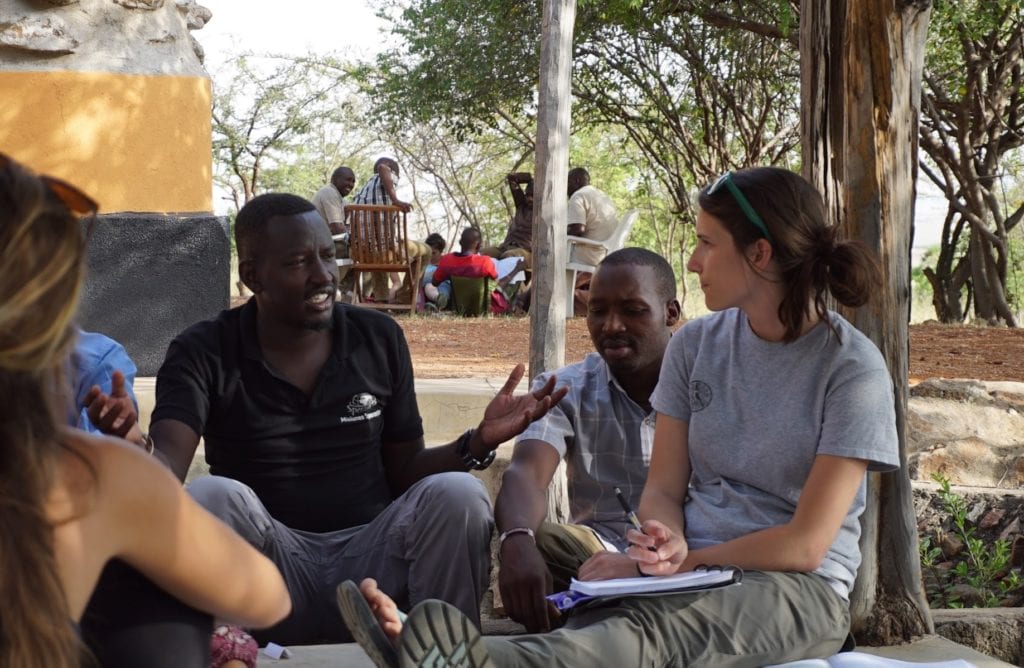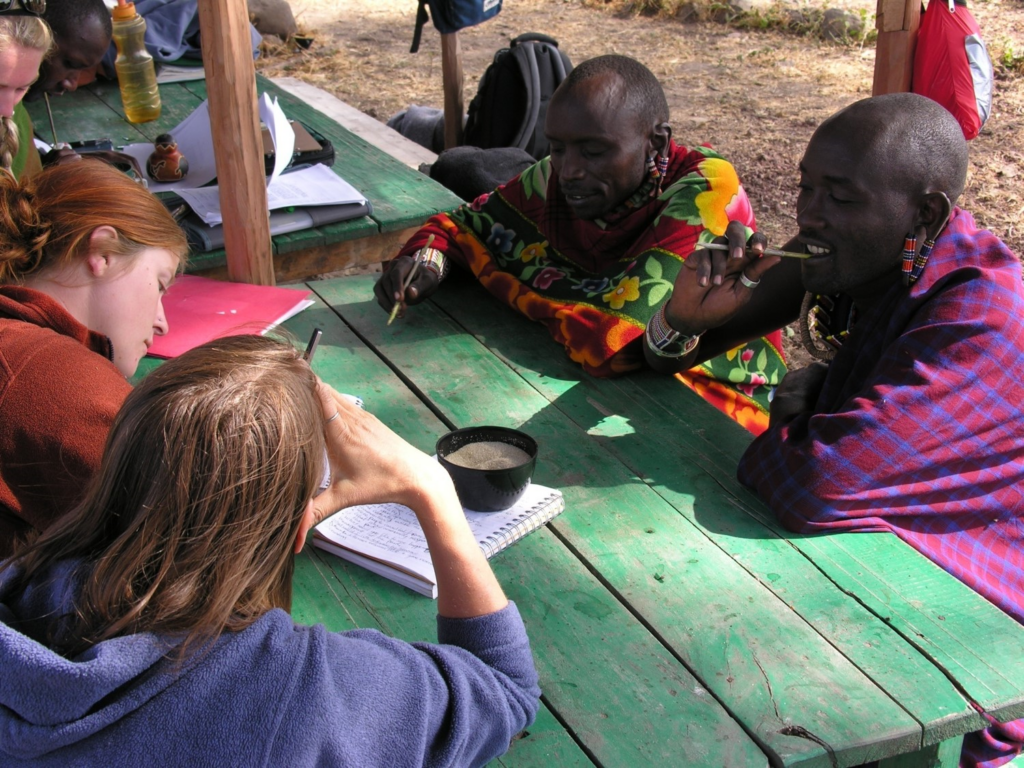Collaborative Research
Collaborative Research
Decolonizing Research
To decolonize knowledge is to liberate ourselves from the idea that Western ways of knowing are superior to all others and to reclaim and recover Indigenous epistemology: history, sciences, and systems of justice and culture. Decolonizing knowledge involves producing new knowledge needed to navigate our shared future.
The Problem of Research in Maasailand
As is true in many indigenous communities, “research” in Maasailand is often considered to be, in the words of Maori scholar Linda Tuhiwai Smith, a “dirty word.” Very little trust exists for researchers themselves, and especially for large scale research projects which are assumed to exist solely for the benefit of researchers and may exploit and misrepresent local knowledge. Today in spite of this troubled past it is clear that research is sorely needed and desired in Maasailand.
Research is a Missed Opportunity in Maasailand.
- A need for greater accountability to the local community under study
Maasailand is one of the most studied places on earth, and yet the Maasai community is often alienated from research that takes place in their home. There is typically no collaboration between researchers and community structures of authority, no reporting of research findings, and the lack of communication creates mistrust, as community members assume that knowledge is sought only for the use of outsiders and not for the people who share the land. - Lack of Services and Guidelines for Researchers
Historically, scholars undertaking research in Maasailand have lacked services and clear guidelines on how to conduct research in this region. With no operating field stations, researchers must find their own accommodations and transportation, and exist largely outside of the web of the Maasai community, locating translators and guides of varying quality on their own. - Missed Opportunity
A tremendous potential exists to create knowledge through collaboration by bringing the best of western science and technology to the study of Maasailand but only if Maasai knowledge and sciences are equally valued by all parties, and guidelines are agreed to by all parties.
MERC’s Research Model
MERC creates opportunities for researchers and scholars to work with Maasai community members, political leadership, Non-governmental organizations, and any others who share the goal of generating and applying knowledge to support sustainable futures in Maasailand under the stewardship of the Maasai community.
Opportunities for Research
Research supported by MERC typically focuses on understanding ecosystem and social/cultural change in the context of the dynamic environment of the Maasai Mara Game Reserve (MMGR). MERC takes an interdisciplinary approach to large and complex research questions that address these discipline specific components:
- Environmental Conservation: Research projects coordinated to glean findings of long-term ecological monitoring studies, including research on big mammals, birds, marshes, soil, grazing and grasses recovery. The Mara River system is an area of particular concern, and cross-study collaboration are needed to assess the impact of tourism on the health of the Mara watershed. Another is the impact of grazing on the MMGR and Maasai community land, and cross-study collaborations on land management and private conservancies.
- Tourism: Research conducted on the impacts of off-road tourism, lodges and other tourist facility on the ecology of the Mara, wildlife and the economic, environmental and social health of local communities, on the carrying capacity of the Mara to support tourist facilites, the current state of employment in the industry and training opportunities for local people, and the fee structure of the MMGR and its relationship to revenue generated.
- Pastoralism and Agriculture: Research collected and conducted on the Impact of different economies on soils, wildlife, and the economic sustainability, cultural survival and health of the Maasai communities in land surrounding the MMGR
- Culture and Society: Research collected and conducted into the cultural impacts of land loss in Maasailand, unemployment, the impact of education on society and culture, on gender and age group identity.
- Education: Research collected and conducted into the effectiveness of education system in Maasailand, the types of education most needed by the community, graduation rates from Primary and Secondary schools, underserved areas, and how education can be a means to cultural survival rather than an undermining force.
- Land Rights and Management: Research conducted into land sales, private conservancies, historical injustices regarding land, and past and present park management.
- Climate Change: Maasailand is being impacted by increased droughts and flooding and other reflections of changing weather patterns, and any research on this subject is very welcome.



